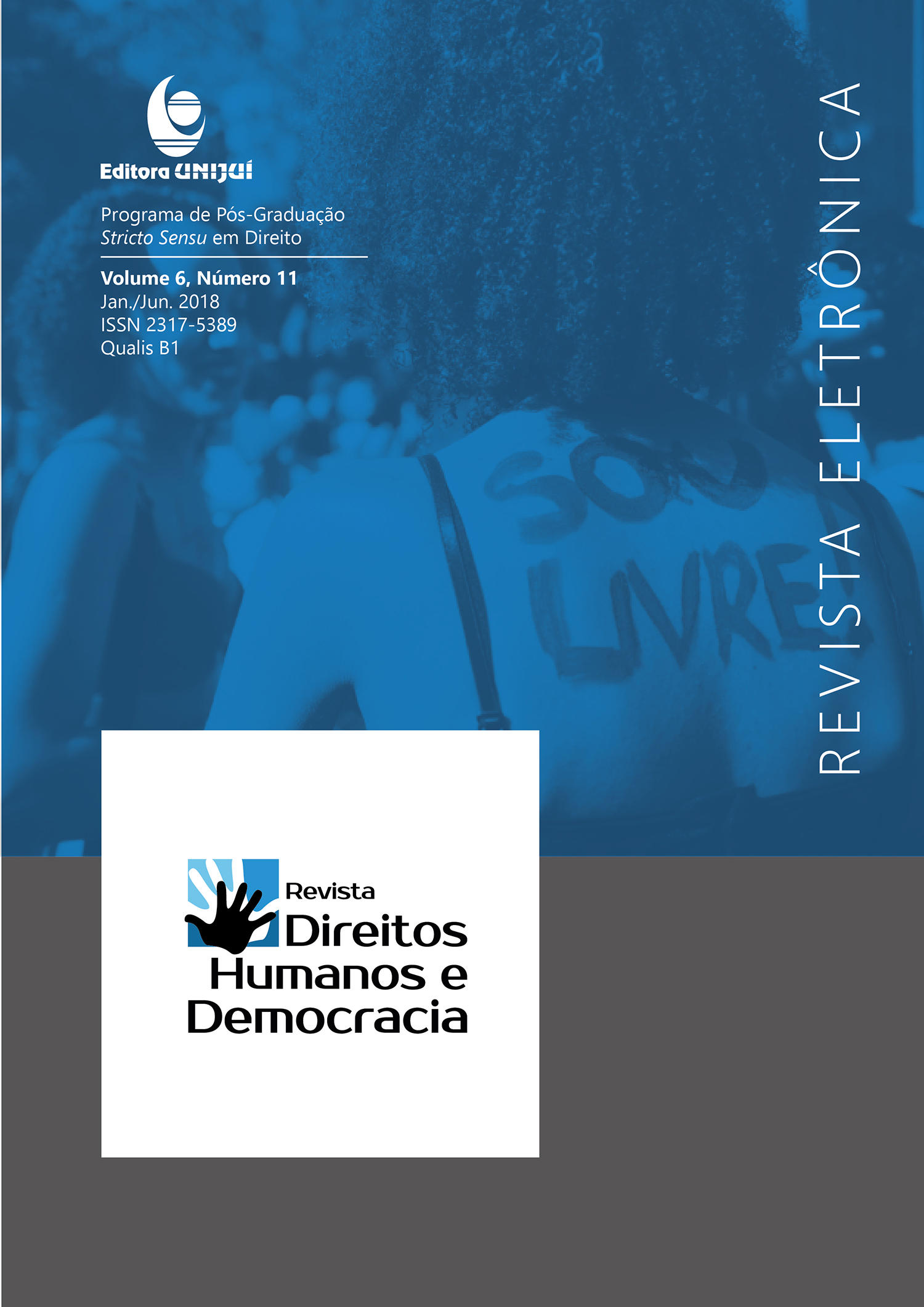O AGIR JUSTO SEGUNDO IMMANUEL KANT: CONSIDERAÇÕES ACERCA DAS MOTIVAÇÕES
DOI:
https://doi.org/10.21527/2317-5389.2018.11.3-30Abstract
O objetivo deste artigo é abordar o agir justo em Kant, a partir da motivação para a tomada de decisões justas e fundamentar o seu valor como sujeito racional perante as intenções que impulsionam seus atos. A opção pela instrumentalidade da lei e suas prerrogativas busca demonstrar os imperativos que comandam a execução das ações, visualizando a consideração moral individual para a busca pela Justiça. O dever ser kantiano sugere o esclarecimento do sujeito da ação para efetivar a justiça particular, pois a autonomia e liberdade são elementares neste processo. A simples afirmação das leis e normas reflete a carência do seu sentido antropológico porque o ser racional torna-se apenas espectador. O método utilizado na investigação é o investigativo bibliográfico onde serão analisadas obras de Kant para fundamentar a exposição e, de comentadores para ampliar a sua compreensão. O texto persegue a ideia que a decisão humana justa está em conexão intrínseca com a sua manifestação moral e racional, porque interessa mais os fundamentos e reflexões do agir humano do que as prerrogativas criadas pelas leis a fim de ordenar a vivência em sociedade.Downloads
Published
How to Cite
Issue
Section
License
By publishing in the Revista Direitos Humanos e Democracia, authors agree to the following terms:
Articles are licensed under the Creative Commons Atribuição 4.0 Internacional (CC BY 4.0), which allows:
Share — copy and redistribute the material in any medium or format;
Adapt — remix, transform, and build upon the material for any purpose, including commercial use.
These permissions are irrevocable, provided the following terms are respected:
Attribution — authors must be properly credited, with a link to the license and indication of any modifications made;
No additional restrictions — no legal or technological measures may be applied that restrict the use permitted by the license.
Notices:
The license does not apply to elements in the public domain or covered by legal exceptions.
The license does not grant all rights required for specific uses (e.g., image rights, privacy, or moral rights).
The journal is not responsible for opinions expressed in the articles, which remain the sole responsibility of the authors. The Editor, with the support of the Editorial Committee, reserves the right to suggest or request modifications when necessary.
Only original scientific articles presenting research results of interest, not previously published or simultaneously submitted to another journal with the same purpose, will be accepted.
References to trademarks or specific products are intended solely for identification purposes and do not imply any promotional endorsement by the authors or the journal.
License Agreement: Authors retain copyright over their articles and grant the Revista Direitos Humanos e Democracia the right of first publication.













